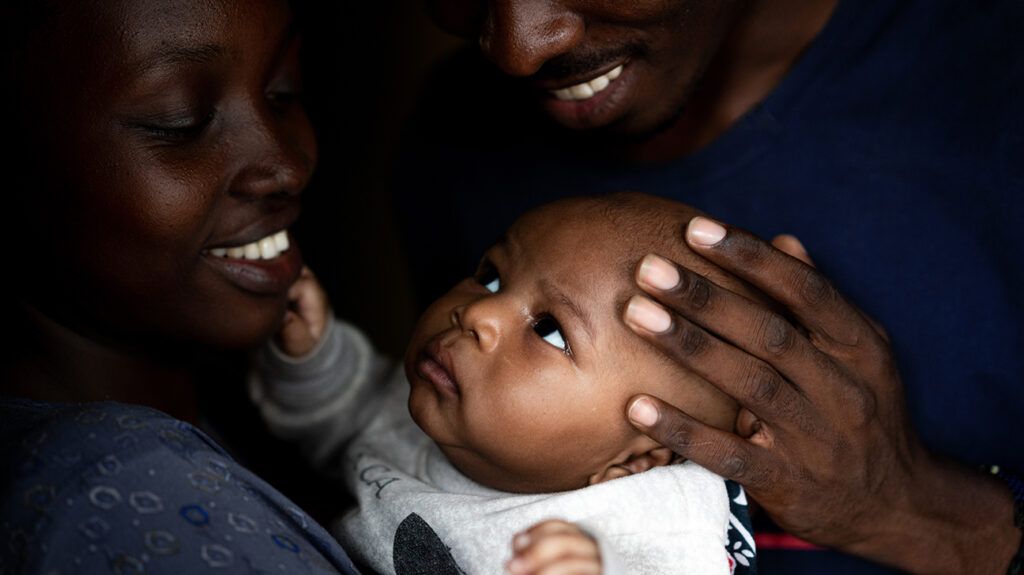Debunking postpartum myths helps shine a light on a mental health condition faced by many perinatal individuals today.

When a baby is born, it’s usually a time of joy and excitement for a family. However, many pregnant people and their partners find that their expectations of how they would feel after the birth don’t align with their experience, often due to a common postpartum complication — postpartum depression (PPD).
The percentage of people who’ve given birth and develop PPD varies, with low estimates of around
The myths surrounding the fearful, anxious, overwhelmed, and confusing feelings that may come with PPD could possibly prevent parents from getting the help they need.
If you have symptoms of PPD, you’re not alone. You’re not a “bad parent,“ and there are highly successful treatment options available to help you manage your symptoms and enjoy being a parent.
The truth: PPD doesn‘t cause people to harm their babies. Some, but not all, people with PPD may experience suicidal ideation, but thoughts of harming others aren‘t associated with PPD.
The news cycles that report the tragic cases of pregnant people who harm their babies are usually extreme cases of postpartum psychosis, not PPD.
Filicidal ideation, thoughts of killing one’s child, is a symptom of postpartum psychosis, which is often confused with PPD. Postpartum psychosis affects
Common PPD symptoms include:
- feelings of sadness and despair
- anxiety, shame, hopelessness, guilt
- mood swings
- indecisive, distracted, inability to focus
- chronic fatigue
- change in appetite
Those with postpartum psychosis have the above symptoms, along with more severe symptoms, such as hallucinations, confusion, delusions, and incoherent speech.
The truth: Approximately
Partners may exhibit slightly different symptoms that include restricted expression of emotions, irritability, and indecisiveness that develop 3 to 6 months postpartum (after birth).
As with the birthing parent, partner PPD can last for a year or more.
The truth: PPD is a mental health condition that requires treatment in order to manage symptoms.
Our society tends to view depression as a mental mindset to “stick out” or that requires an attitude change. In some cases, mental health conditions can get better with time.
However, approximately
Treatment can also support your infant by helping them develop a secure attachment.
Both psychotherapy (talk therapy) and medication are highly successful treatments for PPD. Consider contacting a doctor or mental health professional to discuss your symptoms.
You may also consider practicing coping strategies such as meditation or speaking with a trusted friend or loved one to support your treatment.
The truth: PPD isn‘t an indication of your parenting skills.
You wouldn’t think you were a bad parent for developing diabetes or catching the flu. PPD is a treatable mental health condition. It does not indicate your current or future potential as a parent. Nor is PPD your fault.
This myth persists because of misunderstandings about mental health conditions and the ways in which PPD can interfere with parent-child bonding. For example, the person with PPD may believe that if they loved their child, they wouldn’t feel and act the way they do.
A
A doctor or mental health professional can help you manage how you respond to the diagnosis of PPD and develop healthy coping strategies.
The truth: Most of us are bad at self-diagnosing, and we’re often so isolated after birth that others may not be able to help us realize something is wrong.
The changes in your behavior and mood might not be as obvious to you as they are to someone else. While it’s normal to feel exhausted and overwhelmed after having a baby, the effects of PPD may lead to drastic mood changes, hopelessness, and anxiety that go beyond typical new parent fears.
If you’re not sure if you have PPD, talk with a doctor or your child’s pediatrician at your baby’s well-child checkup. The doctor or pediatrician may be able to determine if you’re experiencing PPD and suggest treatment options that best support your needs.
The truth: PPD can develop several months after childbirth.
While PPD can begin in the first 3 to 6 weeks after birth, it can also develop several months later.
The time it takes for symptoms to begin varies widely from person to person. Even though it may be several months since you’ve had your baby, you could be experiencing the effects of PPD.
PPD is a mental health condition. You aren‘t weak or a poor parent if you are experiencing it.
Feelings of irritability, guilt, overwhelming sadness, and anxiety that last longer than 2 weeks postpartum are potentially signs of PPD. If you believe you are experiencing symptoms of PPD, consider speaking with a healthcare professional for additional support.
Help is available in many forms, from talk therapy to different medications. Your doctor can help you. Try to be open with them about your feelings and how things are going at home.
There are also resources available online to learn more about PPD and to access services and help, including:
- Postpartum Support International
- Postpartum Progress’s list of postpartum support organizations by country and state
Office on Women’s Health
